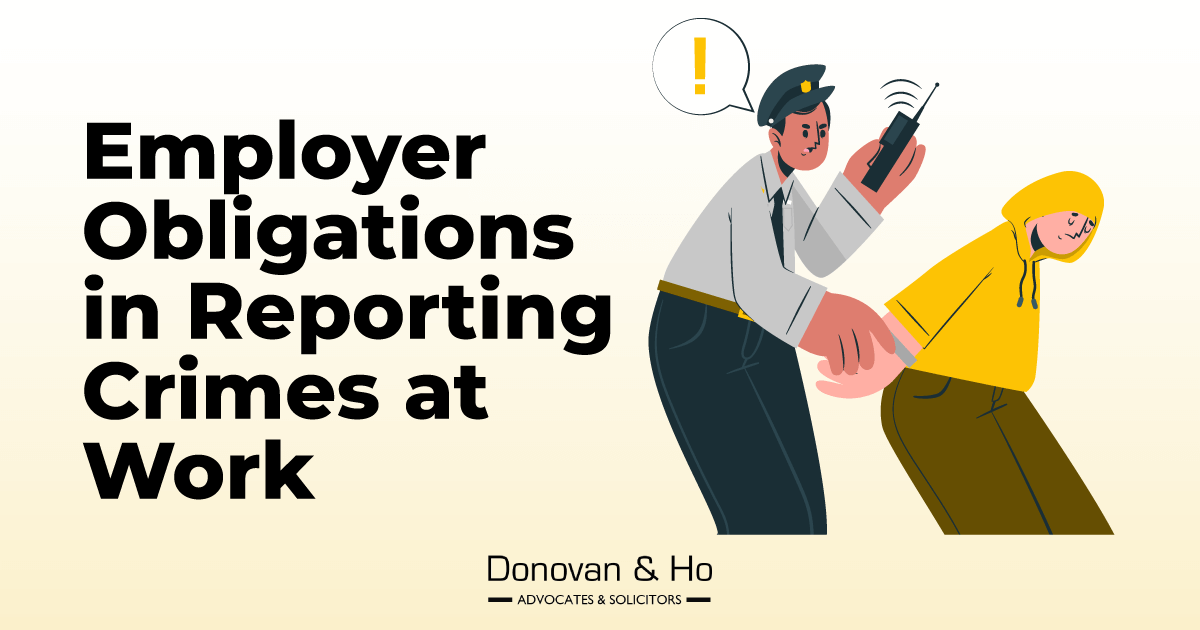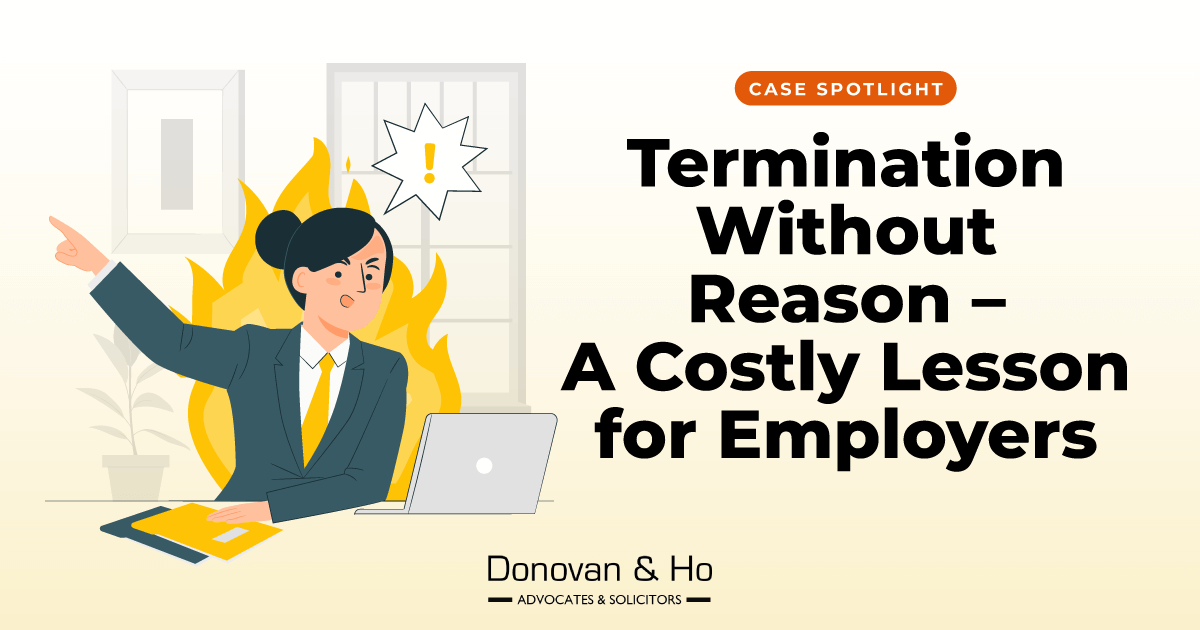Resignations are a routine part of workforce management. Yet, if not handled with care, they can lead to legal uncertainty and operational risks.
In most cases, resignations are straightforward. But consider a situation where a problematic employee resigns and the employer breathes a sigh of relief – only for the employee to later attempt to retract the resignation. Can the employer insist that the resignation stands? Does refusing to accept a retraction amount to a dismissal or termination?
This article outlines the legal position in Malaysia and offers practical guidance for HR teams and business leaders on managing resignations effectively.
The Legal Position: When Is a Resignation Effective?
Once an employee tenders their resignation, it generally takes immediate effect and cannot be unilaterally withdrawn. This remains true even if the employer has not formally accepted the resignation – see Syed Aman Syed Hassan v MARA Institute of Technology [1993] 1 CLJ 228). In that case, the Court also referred to case of Jawala Prasad v. State of UP AIR [1954] All 638 that held:
“Even if his withdrawal of resignation application had been received before the resignation was accepted, he could not claim an absolute right to withdraw his resignation…”
Accordingly, if an employee resigns but later changes their mind, the employer is not legally obliged to allow the employee to retract the resignation. The employer is entitled to treat the employee as having resigned, and a refusal to accept the withdrawal does not amount to a dismissal or termination of employment.
That said, an employer may, at their discretion, agree to the retraction of the resignation. Both parties are also free to negotiate and agree on any terms relating to the resignation or its withdrawal. For instance, they may agree to an extension of the notice period or an early release from employment.
The courts have consistently upheld the principle that a resignation cannot be unilaterally withdrawn:
Case 1: Rozainah Awang v Mahkamah Perusahaan Malaysia & Anor [2022] CLJU 905
The claimant, who had resigned from her permanent role as General Manager, Finance, later accepted a fixed-term position. Upon expiry of that contract, she argued that she remained a permanent employee.
The Industrial Court and High Court rejected her claim, holding that her resignation from her permanent role was valid and effective. It remained binding regardless of whether the VP of Human Resources had allegedly told her “not to worry” about withdrawing it or whether she had completed formal clearance processes. Ultimately, her employment status was regarded as fixed-term.
Case 2: Chong Kok Kean v Citibank Berhad & Anor [2022] CLJU 973
The claimant resigned following a customer complaint, presumably to avoid an internal inquiry. He later tried to retract his resignation and made allegations against the employer when the request was declined.
The High Court held that the bank was under no obligation to allow the withdrawal of resignation. The bank can treat the employee has having resigned and therefore it had not “dismissed” the claimant by refusing his request. The resignation remained effective.
When Flexibility Is Warranted: Handling Retraction Requests
Employers should avoid an overly rigid stance by automatically rejecting all retraction of resignation requests. If there are signs that the resignation was made under threat or duress, emotional distress, or undue pressure, a flat-out refusal may give rise to legal risk. This could take the form of a complaint of constructive dismissal or forced resignation.
Conversely, a valued employee may wish to withdraw their resignation after underlying concerns have been addressed. In such cases, the employer may be inclined to accept the retraction and retain the employee.
In such cases, HR should assess the surrounding context carefully and consider whether it is in the company’s best interest (legally and reputationally) to allow the employee to retract their resignation and stay on in employment.
Do you need an “Acceptance of Resignation” letter?
Given that a resignation is legally effective without formal acceptance, employers may question the need to issue a letter confirming acceptance of resignation.
However, from a best practices standpoint, an acceptance letter remains a key document. It serves several important purposes:
- Removes ambiguity – Not all employees are familiar with the legal principles; a clear acceptance letter confirms that the resignation is accepted, and final.
- Clarity on the terms of departure and the final employment date – It ensures mutual understanding on when the notice period starts and ends, preventing confusion that could affect payroll, benefits, or handover timelines.
- Reminder of post-employment obligations – It allows the employer to reiterate key obligations such as confidentiality, return of company property, or non-solicitation clauses.
- Opportunity to address sensitive issues – If the resignation letter includes grievances or allegations, the employer’s response can clarify its position and reduce legal exposure.
Importantly, acceptance letters should not be treated as a standard template. Where the resignation letter includes unusual wordings (eg: claims of mistreatment or unsafe working conditions), the response should be carefully drafted to avoid unintended admissions or consequences.
Key Takeaways
The legal framework on resignations in Malaysia may be relatively clear, but its real-world application requires nuance. HR teams and employers must be prepared to handle resignations not just as administrative events. Clear policies, consistent documentation, and a case-sensitive approach can go a long way in preventing future disputes.
When in doubt, seek legal advice early. Taking extra care at the point of resignation could make all the difference in avoiding costly and time-consuming litigation later on.
***
This article was written by Leow Ho Eng (Associate) from Donovan & Ho’s employment law practice.
Donovan & Ho is a law firm in Malaysia, and our employment practice group has built a reputation for providing strategic employment advice to local and global organisations. Our team of employment lawyers provide advice on employment law and industrial relations including review of employment contracts, policies and handbooks, advising on workforce reductions, and managing dismissals of employees for poor performance or misconduct. We also represent clients in unfair dismissal claims and employment-related litigation.
Have a question? Please contact us.






